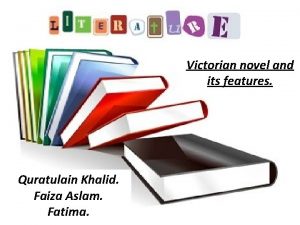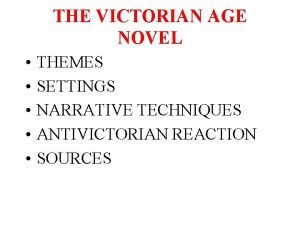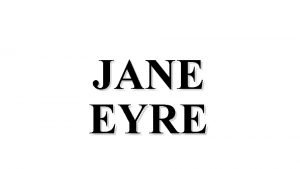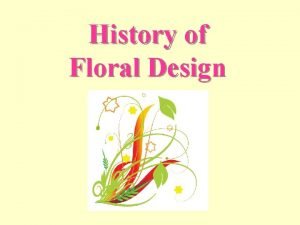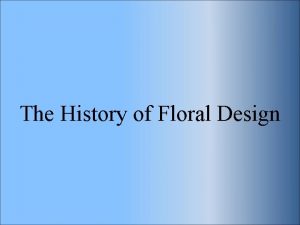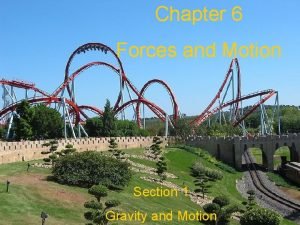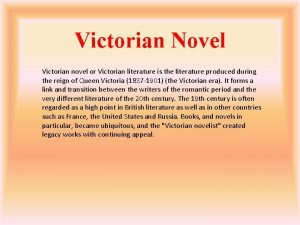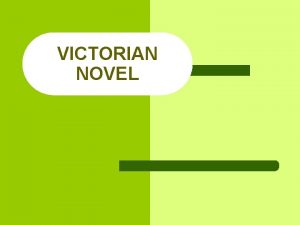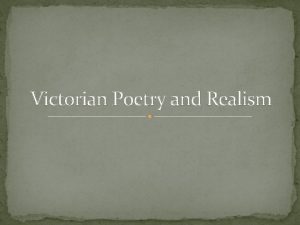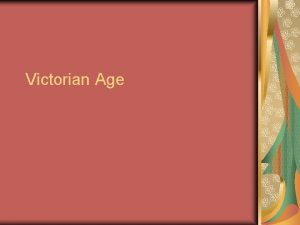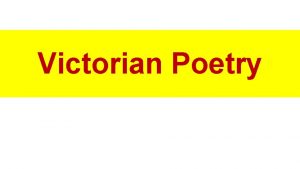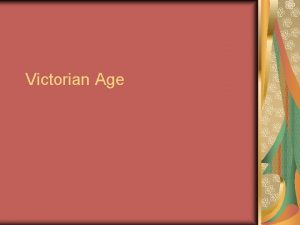The Victorian NovelFiction The Victorian novel in its







- Slides: 7

The Victorian Novel/Fiction* • The Victorian novel in its middle period, was the first historical period in which fiction as a literary genre was culturally central • (* the realist novel was not the only form of fiction: silver fork fiction, short stories, detective stories) • 19 th century novel satisfied escapist moods of reader • The 19 th century reader wanted to be entertained with a minimum of literary convention and esthetic distance, to be close to what he was reading • the novels became transcripts of life, journalistic approach, fiction is history • . • It carries both its sense of own importance and ordinariness

The novel is a product of social and political changes : the rise of middle class (an agent of change) In 1837 literacy was increasing , books and newspapers were expanding their readership, moving further down on the social ladder The popularity of the novel: the beginnings of mass readership The middle classes swanted to read texts that seemed real -

• • „Classic realist“ – the response to s consumer demand The term „realist“ was not common until the 1850 s • The emergence of mass media: With Ch. Dickens journalism and melodrama gathered into the novel Great novelists, created novels of complex symbolic meaning reaching deeper than the superficial pattern of social action • e. g in Dickens´s novels image of desperate isolation of the individual (his grotesque and eccentric characters= life is irrational)

• Victorian period had a strong taste for fantastic and melodramatic Great novelists, created novels of complex symbolic meaning reaching deeper than the superficial pattern of social action • e. g in Dickens´s novels image of desperate isolation of the individual (his grotesque and eccentric characters= life is irrational) • He combines the odd with the colourful and the dramatic in urban life with sentimental humanitarian attitude to human problems • combination of critical and sentimental • The Papers of the Pickwick Club starts as a burlesque (Burlesque is a humorous theatrical entertainment involving parody and sometimes grotesque exaggeration. ) and moves into a picaresque comedy

The Style of the Victorian Novel Victorian novels tend to be idealized portraits of difficult lives in which hard work, perseverance, love and luck win out in the end; virtue would be rewarded and wrongdoers are suitably punished. They tended to be of an improving nature with a central moral lesson at heart. While this formula was the basis for much of earlier Victorian fiction, the situation became more complex as the century progressed.

The 19 th century saw the novel become the leading form of literature in English. The works by pre-Victorian writers such as Jane Austen and Walter Scott had perfected both closely-observed social satire and adventure stories.

Significant Victorian novelists and poets include: Matthew Arnold, the Brontë sisters (Emily, Anne and Charlotte Brontë), Christina Rossetti, Robert Browning, Elizabeth Barrett Browning, Joseph Conrad, Edward Bulwer-Lytton, Wilkie Collins, Charles Dickens, Benjamin Disraeli, George Eliot, George Meredith, Elizabeth Gaskell, George Gissing, Richard Jefferies, Thomas Hardy, A. E. Housman, Rudyard Kipling, Robert Louis Stevenson, Bram Stoker, Algernon Charles Swinburne, Philip Meadows Taylor, Alfred Lord Tennyson, William Thackeray, Oscar Wilde, Lewis Carroll and H. G. Wells (although many people consider his writing to be more of the Edwardian age).
